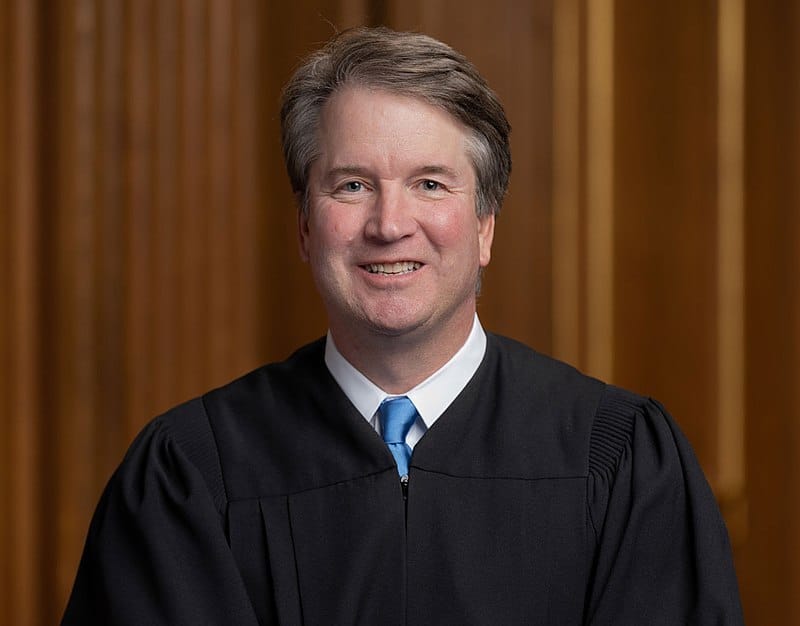New questions are being raised about the nearly six-year-old Senate report on allegations of sexual assault levied against Supreme Court Justice Brett Kavanaugh ahead of his Senate confirmation.
The Guardian newspaper was first to reveal that the 28-page report that came out as a result of the 2018 Senate investigation—which had found “no evidence” to substantiate any of the claims of sexual assault against Kavanaugh—contained “serious omissions.”
Sen. Chuck Grassley (R-IA), the Chair of the Senate Judiciary Committee at the time, released the report. It included an unverified claim that one of Kavanaugh’s accusers, Deborah Ramirez, was “likely” mistaken in her allegation that then-fellow Yale classmate Kavanaugh had exposed himself to her at a dorm party. The reason it was described as “likely” mistaken was because a different Yale student was allegedly known for such behavior.
However, it wasn’t Ramirez who’d told the Senate she was mistaken about Kavanaugh, according to the Guardian’s scrutiny of an obtained non-redacted copy of the 2018 report. That claim was instead sent to the Judiciary Committee by a Colorado-based attorney named Joseph C. Smith Jr., who was a friend and former colleague of the Senate committee’s then-lead counsel, Mike Davis.
Smith—a member of the Federalist Society, which strongly supported Kavanaugh’s nomination—emailed Davis on September 29, 2018 that he had shared a class with both Kavanaugh and Ramirez, and he believed Ramirez was likely mistaken, stating that it was more likely fellow classmate Jack Maxey who’d exposed himself to her. Smith attached a photo to the email of Maxey purportedly exposing himself in his fraternity’s 1988 yearbook picture.
However, Maxey told the Guardian he was still a senior in high school at the time of the alleged incident against Ramirez, who graduated Yale in 1987.
“I was not at Yale,” he said. “I was a senior in high school at the time. I was not in New Haven.”
Adding that he had never been contacted by any Senate staffers who’d conducted the 2018 investigation, Maxey asserted, “These people can say what they want, and there are no consequences, ever.”
Maxey had been described without naming him in the 2018 Senate report.
The revelation raises new questions about apparent efforts to downplay and discredit Kavanaugh accuser Christine Blasey Ford by excluding evidence that supported her claims.
During her questioning at a September 27, 2018 Senate Judiciary hearing, Blasey Ford asserted repeatedly that she was “100 percent” certain that Kavanaugh was the boy who had pinned her down and tried to force himself on her at a high school gathering in the 1980s.
While the 2018 report was released before Kavanaugh’s confirmation, the revelation by the Guardian also comes at a time when the current, Democratic-led Senate Judiciary Committee has been pressing Supreme Court Chief Justice John Roberts about its ethics rules.
Current committee Chair Dick Durbin (D-IL) plans to hold a hearing on Supreme Court ethics on May 2, following revelations that Justices Clarence Thomas and Neil Gorsuch failed to publicly disclose—either entirely or in part—high-priced gifts and business transactions.
It was not clear immediately following the Guardian’s report whether the current Judiciary Committee planned to revisit the Kavanaugh investigation. However, a new documentary on Kavanaugh, which premiered at Sundance in January, is being updated before it’s widely released. It will reportedly include a never-before-heard recording of yet another Yale graduate, Max Stier, describing a separate alleged incident in which he said he witnessed Kavanaugh expose himself at a party at Yale.
Previous reports have revealed that Stier wanted to talk to the FBI anonymously during Kavanaugh’s confirmation process. Republicans on the 2018 Senate committee were reportedly made aware of Stier’s desire to submit information to the FBI, yet he was not interviewed by the committee’s investigators.
The committee’s final 2018 report claimed there was “no verifiable evidence to support” Ramirez’s claim about Kavanaugh’s indecent exposure, which—as he did of Blasey Ford’s accusations—the now-Supreme Court Justice has denied ever took place.
Kavanaugh was confirmed on October 6, 2018, nine days after Blasey Ford’s Senate testimony.


